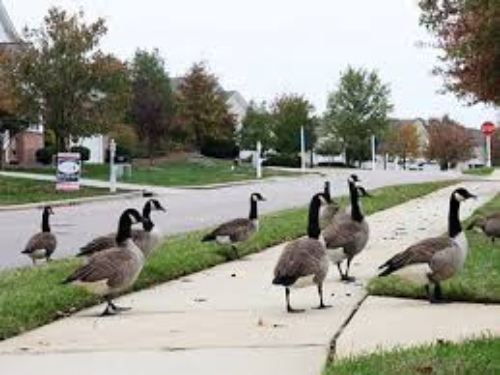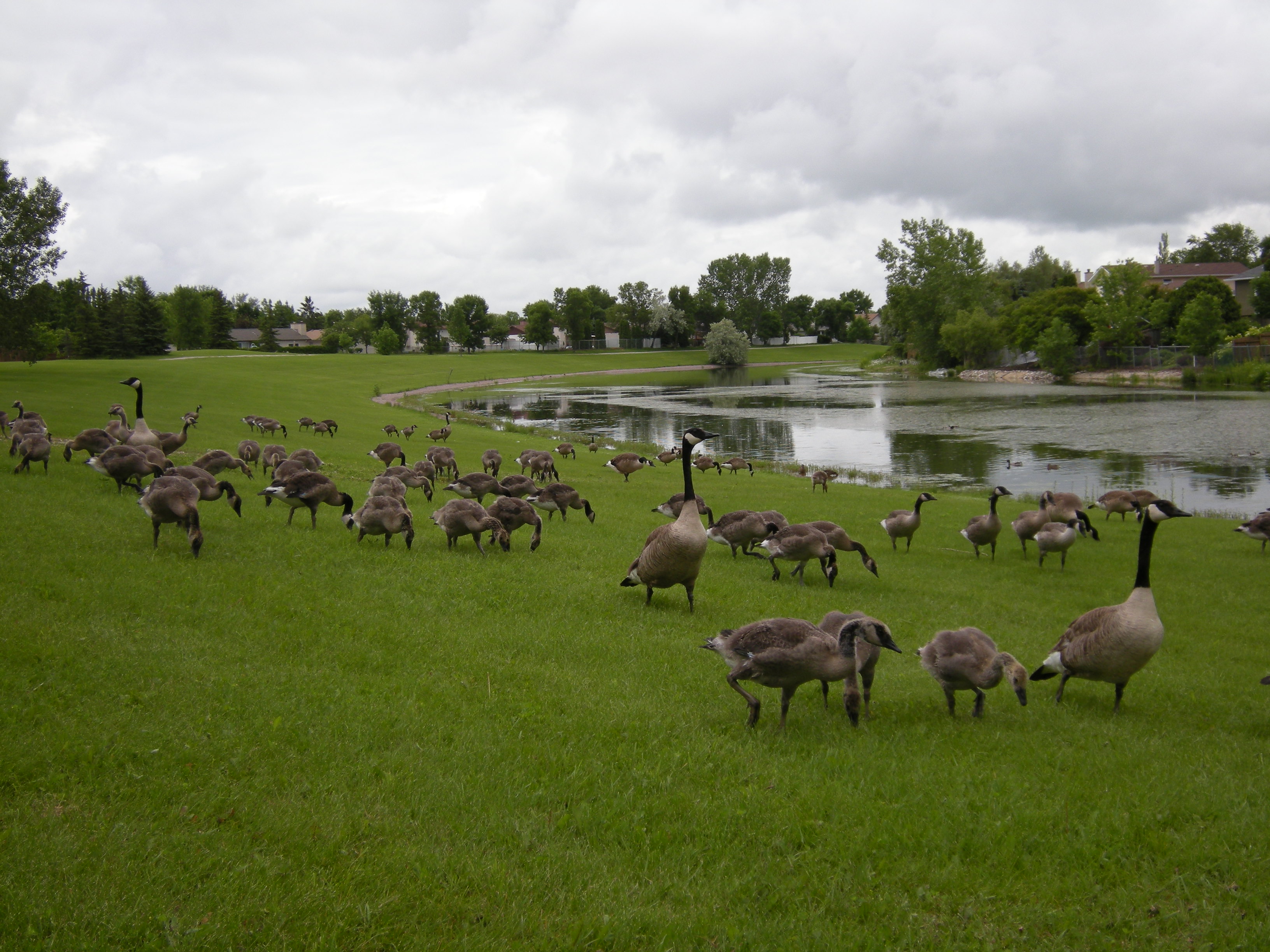Safe, effective, humane goose control
The Problem
A half-century ago Canada Geese were almost extinct because of excessive hunting and destruction of their habitat. The population of these handsome birds has now been successfully restored and flocks of migratory geese can cause problems in areas where they try to coexist with humans. To make matters worse, we now have resident geese that do not migrate and have taken up residence throughout the Southeast, often on the same property throughout most of the year. Below are some of the likely results.

Goose Droppings
A goose may produce up to 1 lb or more of feces per day (which may carry e‐coli bacteria). Goose droppings litter the landscape and create negative first impressions to visitors, tenants and employees. Feces can be tracked inside, contaminating the lobby, reception and other areas. Potential human pathogens in fecal material include Cryptosporidium, Giardia, Listeria, Chlamydia Psittaci and Rotavirus.
Destruction of Turf and Soil
A single goose can damage 5 sq feet of turf daily. Geese can also eat up to 3 lbs of grass per day per bird. Aside from the damage to turf and soil, geese can also cause heavy traffic and other human hazards.

Contamination of Water
Goose feces can pollute the water and make the water unsuitable for swimming. If high geese numbers exist in shallow waters, their droppings can change the water’s ecology and cause bacterial, algae and other problems.
Aggressive Geese
Geese can become very hostile during nesting season causing a possible liability issue for property owners. Geese will not hesitate to protect their nest and goslings. A pair of geese can, in 5 to 7 years, easily become 50 to 100 birds, so act now before a minor inconvenience today becomes a major problem tomorrow.
